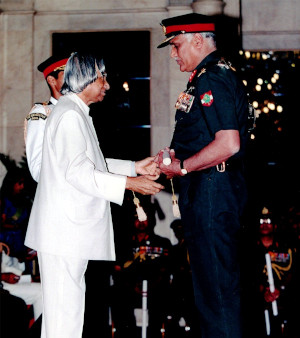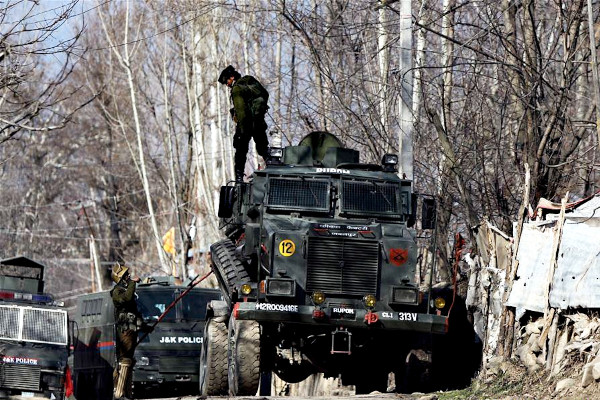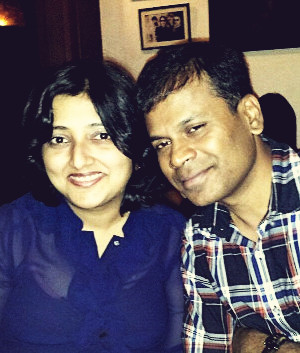Latest Contributions
Salute to the Tigresses in Olive Green

Major General Raj S. Mehta, AVSM, VSM is a retired Army veteran with 39 years in uniform. He has a Masters degree in English (Panjab University 1975), an M. Phil. in National Security (1996) and yet again in International Security (2001) from Madras University.
In 1998 he sustained a serious injury in an encounter with foreign terrorists while commanding an Army formation as a Brigadier in Kashmir.
Post retirement, Major General Mehta has consciously become an educationist. He has forayed into writing about heroes, ecology, women as equals but different; and on security, nuclear and terrorism as well as HR issues affecting the military. He demystifies failure and labels it as an essential stepping stone to success by recounting his many personal failures. He also speaks to children across India on 'Reaching for the sky'.
Major General Mehta builds war museums; he has worked on many and delivered several. He heads Sarthi Museum Consultants based in Mohali, Punjab.
It was a biting cold, late winter evening in Jan 2004, at Baramulla — a border town with the notorious and well deserved reputation for being the hub of terrorism in North Kashmir.
I was the GOC of the Division headquartered there. It was past the witching hour and I must have dozed off in the first interlude of sleep in an active, 18 hour day when I got a call on the phone. The operator displayed his urgency by prefacing the call as “Urgent,” then said, “IED phata hai, Sahib. Capt Devika Gupta aap se baat karna chahti hain. MI Room se bol rahi hain.” ("An Improvised Explosive Device has gone off. Captain Devika Gupta wants to talk to you. Calling from the Medical Inspection Room.")
Soldiers in Kashmir sleep with their weapons and I was no different. In two minutes, I was in uniform.

Major General Raj Mehta receiving an award for distinguished service in a war zone from the President on Republic Day.
The QRT was ready too and we were racing out of the GOC’s Bungalow nestling on the banks of the River Jhelum. The MI Room was close by and when I arrived, there was subdued activity.
The RR soldier was part of a Unit crossing Baramula out for a night domination patrol when he had stepped on an IED (improvised explosive device) disguised as a transistor. His intestines had split open. His team had rushed him to the MI room, where the medical officer, Capt Devika Gupta, her hands encased in bloodied white gloves right up to her shoulders started stitching him skillfully, to stop his intense bleeding.
It was touch and go! My staff had reacted fast and placed an armoured car — a South African made mine-proof, bullet-proof Casspir and a duty Gurkha QRT (quick reaction team) to escort the lady doctor and patient to the Base Hospital at Srinagar, 60 kms away, if needed. All Standard Operating Procedure came into play.

A Casspir armoured car deployed by the Indian Army at Jammu & Kashmir.
“Sir, It’s, touch and go,” Capt Devika told me on arrival. “I have put almost 150 stitches on him. He has to reach the ICU at Srinagar for immediate operating as his vitals are collapsing. I need to monitor him and hold a drip otherwise he will die on my hands. Need an open jeep, not this cramped tank,” she said, pointing to the narrow ceilinged Casspir that was meant for war, not casualty evacuation.
It was past 1 AM now and the Baramulla-Pattan road was notorious for terrorist fire on our convoys because the road was cut through low hills and gullies near Pattan, a very trouble prone area. I as GOC and was morally responsible for any orders I gave. In this case, I felt that she had to go in a Casspir, if she was not to lose the patient and her life in an ambulance Gypsy. I told her the same in no uncertain terms.
Generals are trained to anticipate trouble and the moment I said what I had to, my men began to respond, till a quiet, firm, but an authoritative voice intervened. “Just a minute General Sir.” That was Capt Devika in a voice that wasn’t hers, so my mind registered. She was dressed in a blood spattered green military sari and had just got up from her stitching up the soldier’s abdomen.
She was actually just five feet tall, petite, well-mannered, very good in her job but for some reason, when she pulled herself up and snapped her beret on over her short hair that dark night, with about 50 odd soldiers and officers watching, she seemed to me to be taller than I… She was!
She walked up to me close enough for me to see her angry, flashy, blazing eyes. “Sir, who’s the GOC?” “
Have you any doubt?” I asked her. No, she said, “I have no doubt. Now tell me, who is the doctor whose treating the soldier?”
I understood. GOC’s aren’t stupid. Anyone would understand and I certainly did. “Sir, the boy is my patient. Do not interfere. If you do, you will carry the responsibility for his death. I will carry him in the open Gypsy, Not the Casspir. If I die, my husband will grieve for me. You need not bother (he was a Medical Specialist at the Base Hospital [BH], a great lad whom I had met at the BH while looking up my wounded soldiers)… and Sir, you can later court martial me if you wish but let me go now”.
With all my men waiting for my reaction at being “dressed down” by this chit of a girl with three years’ service to my 36 years, I did the only thing any officer and gentleman would have in a war zone.
I saluted her. “Capt Devika, I am sorry I interfered. Go. God is with you”. There were at least two people hiding their tears that dark night and she was just one of them.
The drama had yet not unfolded. At Pattan, the area I was most worried about, one of her Gurkha escort vehicles broke down at about 2.30 AM. The brave gutsy doctor asked her escort to catch up after repairing the broken down vehicle and proceeded the last 30 kilometers unescorted in her open Gypsy. Unescorted by other than her courage and God who was with her!
On the terror grid, no one is given special privileges, man or woman as everyone is committed to specific jobs, so it was with enormous relief when Devika called me up at 4.30 AM. “Sir, the soldier has been operated upon and will make it. I joined in the operation. It is Sunday. Can I have half a day off? You are aware I am 6 months pregnant and my hubby has arranged for my term tests”
That morning I called up the Corps Commander. The Army Commander was in station and was spoken to. So was the Chief! Three days later, she was awarded the Chief of Army Staff’s Commendation Card for her heroism and devotion to duty — a rare honour!
Months later this Tigress had delivered a baby. A child who would one day hear about a great, feisty Mum. A woman who sorted out a protective General — and won!
When some of my peers say or write that women are not suited for the Uniform, I react very strongly in their favour because the women I have seen and interacted with were Tigresses to the core. They are as lean, mean & keen as any man. Walk the same walk!
Hats off to the Tigresses in Olive Green!
Post Script
Capt. Devika Gupta of this story is now a Lieutenant Colonel and is posted at Army Hospital, (Research& Referral) as Clinical Specialist Pathology and Transplant Immunologist with effect from 01 June 2017. An alumnus of AFMC Pune, she did her post graduation in MD Pathology from Delhi University, followed by super specialization in Transplant Immunology from AIIMS, New Delhi.
Her husband Lieutenant Colonel Satish Mendonca is a Super Specialist as well.

Lieutenant Colonel Devika Gupta with Lieutenant Colonel Satish Mendonca.
Comments
Heroism and guts
She had both. The General was smart - he knew when to stand aside. Just an amazing story.
Add new comment